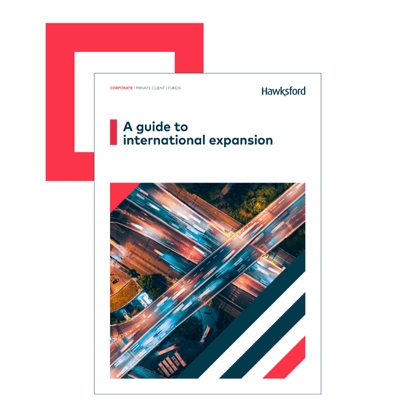The British Virgin Islands (BVI) have been synonymous with offshore company setups for the past three decades. If you are looking to register your company in the BVI, here are some things you need to consider.
Structures in the British Virgin Islands (BVI): a brief history
Situated approximately 80 kilometres from the coast of Puerto Rico, the British Virgin Islands (BVI) today is a well-known jurisdiction for corporate trusts and offshore company set-ups. There are currently more than 500,000 foreign businesses incorporated in the BVI.
The BVI pre-eminence as an offshore financial centre started with its enactment of the International Business Companies Act of 1984, which provisioned for the formation of International Business Companies (IBCs) in its territories.
Today, the BVI is a semi-autonomous territory, with IBCs being the de facto business unit for foreign companies and individuals wishing to incorporate an entity in the BVI. The BVI business and common laws fall under the oversight of the UK, a recognised and established business hub – but the BVI also enjoys additional freedom to set its own incorporation and corporate tax laws.
If you are looking to set up an offshore company in the BVI, here’s what you need to know:
Low taxation requirements (for businesses operating outside the BVI)
The BVI practices a “Territorial Tax System”; therefore, there are effectively no corporate taxes levied for IBCs who incorporate in the BVI but run business operations outside the country. For these companies, items excluded from taxation include income, capital gains, customs duties, sales, profits, inheritances, dividends, interests and royalties.
The government of the BVI only collects taxes from IBCs when there are elements of the business which are run locally – such as local business operations within one of the BVI many islands, or the hiring of local staff. The government profits from most foreign-operated IBCs by way of foreign company registration and licensing fees – which are often significantly higher than incorporation in onshore jurisdictions
As withholding tax is not charged in the BVI, it has Tax Information Exchange Agreements (TIEA) rather than Double Tax Agreements (DTAs) with other jurisdictions. Under a TIEA, the BVI is required to disclose tax-related information when legally required by other jurisdictions.
The BVI cannot sign or ratify international corporate tax conventions in its own right as it is a British Overseas Territory. As such, conventions in the BVI largely follow that of the UK, and the UK may arrange for the ratification of any convention to be extended to the BVI.
Straightforward business set-up
One of the BVI’s main draws as an offshore jurisdiction for company set up is that it is relatively easy to set up an IBC without having to fulfil too many requirements.
Unlike many other financial centres that require directors and shareholders who are resident in that country, new IBCs in the BVI only need to name a minimum of one director and one shareholder, which can be of any nationality. There is no legal requirement for annual meetings if they are held to take place in the BVI - they can be held anywhere in the world.
Shares can be issued in any currency, or for a consideration other than cash – with or without par value up to a maximum of 50,000 shares (additional charges apply for shares beyond that amount). Annual return files and account audits are also not required (though it is good practice to keep them).
It is easy to dissolve a company in the BVI (although there remains a risk that creditors may successfully apply to reinstate a struck-off company). While company liquidation is theoretically a complicated process, in practice companies that do not renew their registrations after a period of time may be simply struck off without any further action taken against them; unless there are mitigating factors. All records pertaining to the company and its activities must be kept for several years should the company wish to be dissolved without renewal of annual fees.
BVI company structures are straightforward to setup and maintain as it is not currently mandatory to undertake annual reporting and tax filing. This can also make them more cost effective. As a recognised jurisdiction, BVI entities are able to have corporate bank accounts which are generally required to facilitate operations, international banking transactions and investments.
The strong and legal professional workforce also helps to facilitate a straightforward setting up process in the BVI.
“The BVI plays host to a number of leading International law firms providing strong and professional legal services,” said Irene Lee, Business Development Director, Asia.
Track record of confidentiality
The BVI has a good track record when it comes to business information confidentiality. There are currently no requirements for the beneficial owner of a company to be made public (although this may change in the future); however, the registered agent that an IBC registers with must have access to that information. Nominee directors and nominee shareholders can also be used as an extra layer of privacy for the ultimate beneficial owner, as long as there are documents in place to reflect the real owner of the company, such as a declaration of trust. The only record available to the public at this time is the Register of Director.
Registered business agents in the BVI are only required to disclose company ownership under a lawful request, such as a TIEA issued by another jurisdiction.
The BVI also offers IBCs the permission to issue bearer shares through an authorised custodian; however, this option is rarely used in today’s context of Common Reporting Standards (CRS) and Automatic Exchange of Information (AEOI).
Another area where the BVI enables confidentiality is through the possible use of Trust Structures as owners of the underlying IBC company. The BVI VISTA trust is a Private Trust Company (PTC) established to act as Trustee of a Trust which owns the underlying IBC. This Trust enables the owners to manage the assets of the trust and underlying company themselves.
“The VISTA Trust is unique to the BVI, and it’s a very useful device when a settlor wants to retain management control of the underlying company and not have to be accountable to the trustee for actions taken. It is a popular device in Asia for the succession of trading companies and for Asian companies generally,” said Marcus Hinkley, Head of Private Client Asia.
Diversity of corporations and trust structures
When it comes to the variety of corporations and trust structures available, the BVI is one of the most diverse financial centres worldwide. New IBCs incorporated in the BVI can be registered under any of these names or suffixes:
- Limited/Ltd
- Corporation/Corp
- Incorporated/Inc
- Societe Anonyme/Sociedad Anonima (S.A.)
The registration of company names in (Mandarin) Chinese are also permitted in the BVI, which makes the BVI a popular offshore option for clients hailing from China Hong Kong, and Taiwan`.
On the corporate trust front, the BVI offers non-charitable purpose trusts, which are set up for the benefit of purposes instead of persons.
“Purpose trusts are often used to hold the shares of a private trust company, or any other trust where the assets are to be held for a purpose instead of a legal person. These trusts are not easily found in other jurisdictions,” Marcus said.
Cost of Incorporation and Annual Renewal
Companies setting up in the BVI save on annual reporting and tax filing requirements, though they will have to pay an annual fee to keep the company in good standing.
Effective 1 Jan 2018, the government fees to incorporate and maintain an IBC issuing less than 50,000 shares has been increased from US$350 to US$450 per annum.
In addition, due to the non-requirements for a resident director and company secretary, BVI IBCs are very cost effective when clients are looking for a company to hold their assets or operate as a business entity for trading or investment and investment holding purposes.
Reputation on the rise
The BVI’s commitment to IBC’s confidentiality is a double-edged sword – where once upon a time, the secrecy available to IBC formations have led to individuals and companies utilising BVI IBCs for tax evasion and avoidance, and illegal transfer purposes. Today, regulators in the BVI have been working hard to restore their reputation, especially after the Panama Papers leak. This has been accomplished through a series of anti-money laundering regulations and amendments, with the most recent amendment passed on 1 April 2018.
The BVI’s recent OECD ratings have improved over the past decade. It was once deemed non-compliant, but recent records from April 2018 indicate that the BVI is ‘largely compliant’ with requirements for exchange of information on request.
[Find out the differences between doing business in Singapore and the BVI.]
Limited banking options
With only three banks serving the entire territory, BVI’s banking sector is limited. IBCs wanting to open bank accounts in the BVI would have to have an actual operating business with staff located in the BVI – or have an “offshore bank account” for the BVI IBC in another jurisdiction (such as Singapore) which recognises and is familiar with BVI structures.
The banks in the BVI also now have strict know-your-customer (KYC) requirements, where personal visit and face to face meetings are often necessary to open bank accounts for IBCs.
“BVI is not ideal for hosting bank accounts. Compared with Singapore for instance, it is difficult to have a bank account in the BVI unless you are physically living there – but in Singapore, you can have a bank account without having to physically live there,” Irene said.
To BVI or not to BVI?
The BVI is a viable and popular jurisdiction worth considering for offshore company formation and passive business activities or for investment holding purposes, due to its ease of setup, territorial tax system and variety of structures.
“If you’re looking for a simple company to hold your assets rather than holding them in your personal name, then a BVI company is a viable consideration as it is a recognised legal entity. If you need a recorded and regulated structure in a well-reputed jurisdiction for trading purposes, then other more established jurisdictions, such as Singapore, may be the preferred choice,” Irene said.
From a trust perspective, a BVI Trust is one of the pre-eminent trust vehicles in the offshore world. They have been tested in the BVI Courts and found to be robust device for the protection of assets and the preservation of family wealth. The law is also regularly reviewed to ensure that it remains current.

Updated on



